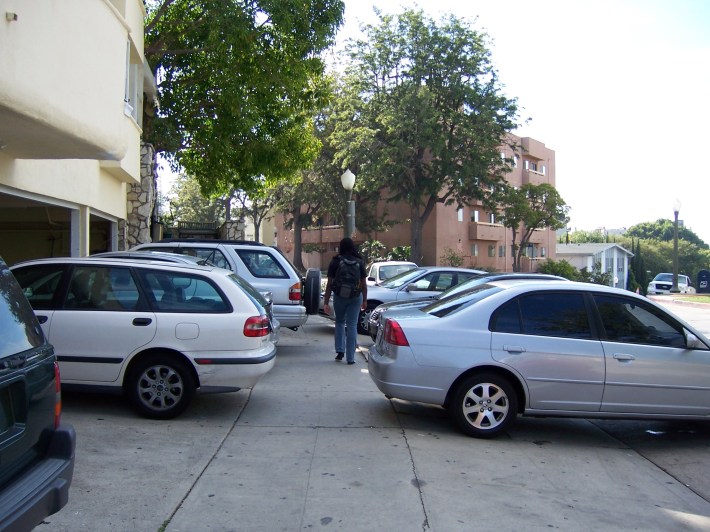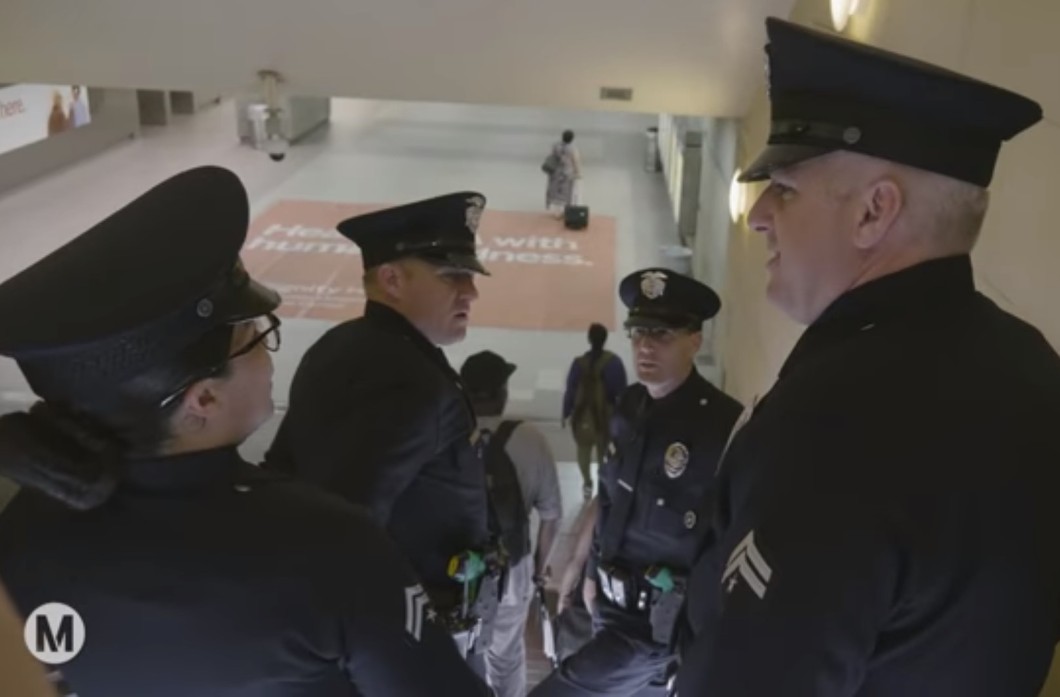
UCLA Professor, now Emeritus, Donald Shoup thinks about the ways people find to get around parking limitations—and some of the ramifications of their behavior—in the latest issue of Access magazine from the University of California.
In Westwood Village near UCLA, for example, he finds that people park on driveway aprons, often blocking sidewalks on the crowded streets. Landlords charge their tenants for these parking “spaces” even though the land is publicly owned. Although blocking sidewalks is illegal, enforcement in the area is lax, says Shoup, because it is a student area and the local city councilmember has requested “relaxed enforcement.”
Over time, this has led to an acceptance of parking on sidewalks in the village, with the message clearly being that parking cars is more important than leaving space for pedestrians.
Of course Shoup has some ideas for solving this problem. Overnight residential parking permits would bring in a little bit of revenue and be relatively simple to enforce, needing only one round each night to cite illegally parked cars. Charging the same price for the permits as nearby UCLA parking structures would bring in even more revenue.
As always, Shoup strongly suggests that any revenue thus earned should be spent on improving the area where it is collected--for example by fixing sidewalks, planting trees, filling potholes, and improving public safety, all of which are needed in this part of Westwood.
It's difficult to convince people to change, he says, especially when they believe they benefit from something like free parking. However,
If curb parking is free, entrepreneurs will find ways to create informal markets that serve drivers who are willing to pay for convenience. These informal markets respond to the problems caused almost entirely by free curb parking. The shortage of free curb parking is not merely a problem, however. It is also an opportunity to create a formal market with fair prices that efficiently allocate land for parking. A formal market for on-street parking will reduce traffic congestion, air pollution, and greenhouse gas emissions, and will generate ample revenue to pay for neighborhood public services.
Access magazine publishes transportation research from the University of California Center on Economic Competitiveness (UCConnect). The Spring 2015 issue containing Shoup's article also features:
- Michael Smart and Nicholas J. Klein exploring the different travel patterns of gay couples and straight couples living in gay neighborhoods, emphasizing the importance for planners to think of neighborhoods as social constructs, not just physical places.
- Erick Guerra looks at the effects of transit investments in suburban Mexico City, finding that they improve travel for low- and moderate-income riders there.
- Susan Handy and her colleagues at UC Davis found that the opening of a controversial big-box store in Davis may have reduced vehicle miles traveled in that city, where bikes and transit make up close to twenty percent of local trips.
- Richard Arnott reflects on the theory comparing traffic flow to water.
- Painter and transportation planner Richard Wilson reflects on what he's learned about the windshield perspective by painting it.





